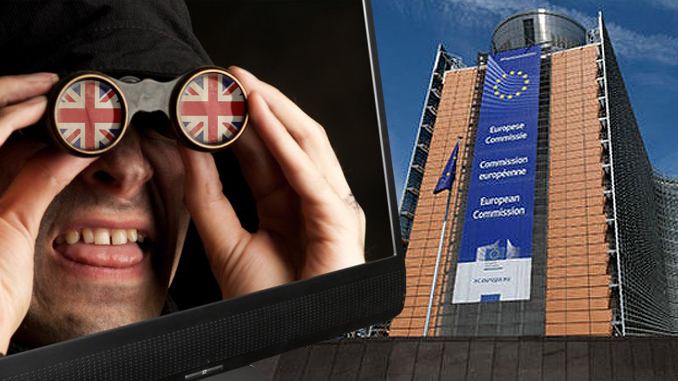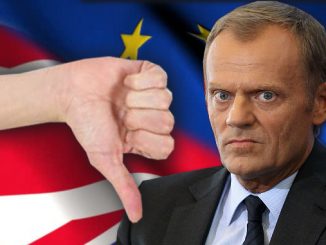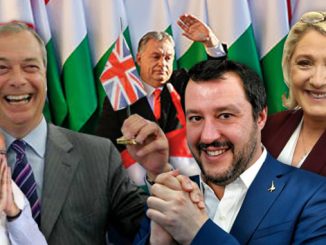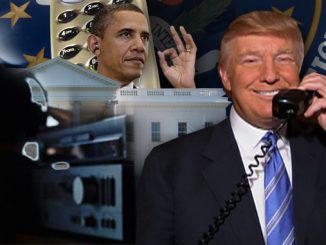
The EU official in charge of negotiations with Britain for its exit from the EU—commonly referred to as Brexit—suspects Britain is spying on the negotiations. While the British contingent has denied the allegations, it would not be surprising to learn it’s true. “The Brits have much to lose. Their economic, diplomatic, and strategic futures are on the line in this monumental shift back to independence.”
By S.T. Patrick
When the United Kingdom received sensitive documents within hours of them having been presented to EU officials last month, the EU became concerned. Soon after, the EU charged that the British secret service was spying on the continuing Brexit negotiations in Brussels.
Brexit has been the scandal du jour that has dominated recent British media in a way that Russiagate has consumed the American press. Brexit is a merging of the words “Britain” and “exit,” meaning the UK leaving the European Union. In June 2016, UK voters decided by a margin of 51.9% to 48.1% that they would leave the European Union. England and Wales supported Brexit, while Scotland and Northern Ireland voted to remain in the EU. The total vote favored leaving, which the UK will do on March 29, 2019.
There are issues regarding leaving, as there are in any divorce. The UK will have outstanding bills due to the EU. There is a dispute about the Northern Ireland border. It has yet to be decided how UK citizens living elsewhere in the EU and how EU citizens in the UK will be classified. The disputes have been the subject of talks in Belgium, where some of the EU’s official buildings are located.
When Martin Selmayr, the most senior EU official in Brussels, became suspicious that British secret services were spying on the negotiations, he began demanding hard copies of documents rather than emails. The British contingent has denied the insinuation that their positions in the negotiations have been assisted by spying.
If the Brexit negotiations were subject to espionage, it would not be an unwarranted surprise.
The Brits have much to lose. Their economic, diplomatic, and strategic futures are on the line in this monumental shift back to independence.
The EU would surely like to guarantee that the United Kingdom will be an example to the other 27 nations within the European Union. If the UK brexits and thrives, it could then encourage similar considerations by other nations struggling within the confines and burdens of the EU. The EU delegation, led by chief Brexit negotiator Michel Barnier, is determined to ensure that the break will illustrate the need for a strong union throughout Europe.
When negotiations began, officials questioned the UK’s positions and strategies toward Brexit. Talk leaked that the Brits didn’t seem prepared for such a colossal move. Tom McTague of the Washington, D.C. news daily Politico described Britain’s perceived lack of preparedness.
“Britain is simultaneously the land of the smartest operators and a bunch of idiots being marched toward a cliff edge,” McTague wrote.
Anti-globalist commentators view the EU attitude and McTague’s assessment as metaphorically resembling the overly controlling parent who tells the 22-year-old that they should not leave home because they are destined to fail without further parenting. The parent tallies up the favors given to the child, and then stops all aid in an effort to prove that leaving equals destitution.
The British are determined to succeed on their own, as they once did mightily and proudly.
Both sides have stated that they would like to reach a Brexit agreement by the end of October. If not, a “No Deal Brexit” may occur in May. The EU, and those who oppose Brexit, have used the media to outline a laundry list of frightful consequences that would befall the UK if Brexit occurs without a beneficial deal in place.
British Labour leader Jeremy Corbin says it will be a “national disaster” if Brexit occurs without an agreement, but Prime Minister Theresa May has repeated that “no deal is better than a bad deal.”
Liberal Democrat politician Jonathan Fryer recently claimed that there was a “mole in the system” that was aiding Britain in the Brexit talks. Fryer absolutely believes that the spying allegations in Brussels are true.
“I think it’s quite a credible story,” Fryer told RT UK. “We don’t only spy on our so-called enemies; we also spy on our friends, though, of course, will deny it, and intelligence services are staying mum on this.”
While British officials have denied it, it has been rumored that British diplomats have been taking their own printers into EU buildings, fearing that house printers have been hacked to record all documents. Former Brexit Secretary David Davis was also said to have used a snoop-proof briefcase. Tensions are high on both sides, no matter how calm the public remarks have been.
Is there a 007 penetrating the gothic complexes of Europe’s most powerful offices? It seems a bit Ian Fleming, until you consider what is on the line for the UK. It is more inconceivable that they wouldn’t have every department of every government arm working toward a beneficial Brexit, the new starting line of Britain’s future.
S. T. Patrick holds degrees in both journalism and social studies education. He spent ten years as an educator and now hosts the “Midnight Writer News Show.” His email is [email protected].




